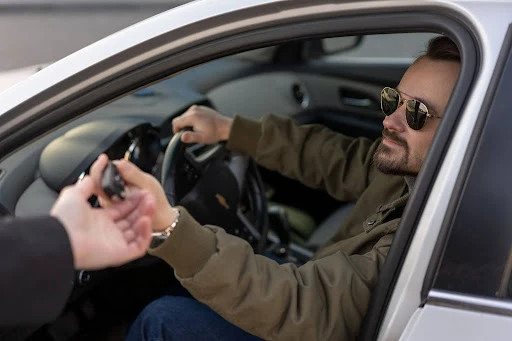Rideshare services like Uber and Lyft provide millions of trips annually in Virginia. But when accidents happen, especially in cities like Richmond, Norfolk, or Petersburg, determining who’s responsible and how your injuries are covered is far more complicated than in a typical car crash. Unlike collisions between private drivers, rideshare accidents involve overlapping policies, phase-based liability tiers, and compliance with state-specific laws governing transportation network companies (TNCs).
Virginia law § 46.2-2099.50 requires rideshare drivers to carry different levels of insurance depending on whether they are waiting for a ride request, en route to pick up a passenger, or actively transporting one. If you’re a passenger or another motorist injured in a rideshare crash, your recovery depends heavily on understanding these coverage thresholds—and on preserving the right evidence from the start.
Tronfeld West & Durrett represents clients injured in rideshare collisions throughout Virginia. We handle both Uber accident cases and Lyft crash claims for injured passengers and pedestrians. In this article, we’ll outline the essential steps to take if you’re involved in a rideshare accident.
Immediate Steps to Take After a Rideshare Accident
In the moments after a rideshare accident, your safety and documentation of the incident should be the top priorities. Even though your ride may have been app-tracked, your legal claim requires more detailed proof.
1. Call 911 and Ensure a Police Report Is Filed
Your first priority after a rideshare accident is safety and medical attention. Call 911 immediately and request both police and emergency medical services. This step is vital even if you think your injuries are minor. The responding officers will create an official crash report that details the driver’s status, road conditions, weather, and any potential traffic violations.
In Virginia, police reports are an essential piece of evidence in personal injury claims because they document fault indicators early in the investigation. Make sure the officer records that the vehicle was an Uber or Lyft ride and ask for the report number, as this will be crucial when filing your claim.
2. Photograph the Scene and Preserve Digital Evidence
Once you’re in a safe location, take comprehensive photographs of the crash site. Include close-ups and wide shots of the vehicles involved, their license plates, skid marks, traffic signals, and property damage. If you have visible injuries—cuts, bruises, or swelling—photograph those as well.
It’s also helpful to take a screenshot of the Uber or Lyft app showing the driver’s active status, trip ID, or any communication with the driver. These images can prove the rideshare company’s insurance coverage was in effect at the time of the crash and help combat attempts by insurers to dispute liability.
3. Collect Driver and Witness Information
Do not assume that using the app means you won’t need additional information. Gather the Uber or Lyft driver’s full name, phone number, driver’s license number, and insurance details. If other vehicles or pedestrians were involved, collect their contact and insurance information too.
Witnesses often provide neutral testimony that can confirm how the crash happened. Ask for names, phone numbers, and email addresses of anyone who saw the collision. These individuals can play a crucial role if the insurance company tries to place blame on you or another party.
4. Report the Accident Within the Uber or Lyft App
As soon as possible, open the rideshare app and report the incident. This action generates an official record tied directly to your trip ID and timestamps the report, which can help establish the driver’s work status at the time of the crash. Without this record, Uber or Lyft may argue that their insurance coverage does not apply. If you receive follow-up emails from the rideshare company, keep copies of all correspondence for your attorney.
You can report an Uber accident using their official reporting system, or follow the instructions on Lyft’s website if you were using that service for ridesharing.
5. Seek Immediate Medical Care and Document All Treatment
Many injuries common in car accidents, such as concussions, internal bleeding, or soft tissue injuries, may not show symptoms right away. Visit a hospital or urgent care clinic the same day, even if you feel fine. Insurance companies frequently downplay injuries if there is a gap between the accident and your first doctor visit.
Your medical records should detail every symptom and diagnosis, from minor headaches to severe trauma. Follow all recommended treatments and keep receipts for medications, physical therapy, and follow-up appointments, as these expenses can be reimbursed in your claim.
Passengers, cyclists, and other motorists often face pushback from rideshare insurers, especially when the driver was in a gray area—logged into the app but not actively transporting a passenger. Taking these steps immediately helps establish a clear record of liability and ensures you have the strongest possible foundation for your case.
Who Can You Hold Liable in a Virginia Rideshare Crash?
Rideshare accidents often involve multiple layers of liability. Depending on the situation, the responsible party might include:
- The Uber or Lyft driver, if they were negligent while actively using the app
- A third-party driver, if another motorist caused the crash
- Uber or Lyft, if there’s proof they failed to vet a dangerous driver
- A vehicle or parts manufacturer, in cases involving mechanical defects
- Even local municipalities, if poor road design or missing signage contributed to the accident
Unlike traditional accidents, rideshare claims require a deeper investigation into trip records and insurance tiers. According to the Virginia Department of Motor Vehicles, drivers must register their vehicles for TNC operation and undergo annual safety inspections. Failure to meet these conditions can increase a company’s liability—but only if it’s properly documented. If you were involved in a rideshare accident, we invite you to contact us as soon as possible for a free consultation.
Our attorneys file evidence requests immediately, before Uber or Lyft can purge relevant ride data. We also review vehicle maintenance records, dash cam footage (if available), and cell tower pings to corroborate trip activity and ensure every liable party is held accountable.
FAQs About Rideshare Accidents in Virginia
What insurance coverage applies after a rideshare accident?
If the rideshare driver was transporting a passenger or en route to a pickup, Uber or Lyft’s $1 million liability and uninsured motorist policies apply. If they were just logged into the app with no active ride, lower coverage limits apply ($50,000 per person, $100,000 per accident). If they were offline, only their personal policy applies.
Can you sue Uber or Lyft directly after an accident in Virginia?
It’s difficult. Uber and Lyft classify drivers as independent contractors. However, you may have a claim if the company failed to remove a dangerous driver, allowed someone with a poor record to operate on the platform, or refused to turn over required ride data during the claims process.
What if I was a pedestrian or cyclist hit by a rideshare driver?
You may still be covered under Uber or Lyft’s commercial policy if the driver was using the app at the time. We’ll investigate trip logs and police records to determine coverage eligibility and build your case accordingly.
How long do I have to file a claim?
In Virginia, the statute of limitations for personal injury claims is two years from the date of the accident, according to Virginia Code § 8.01-243. If the claim involves a government entity (such as a city bus or road maintenance issue), notice must be filed sooner.



